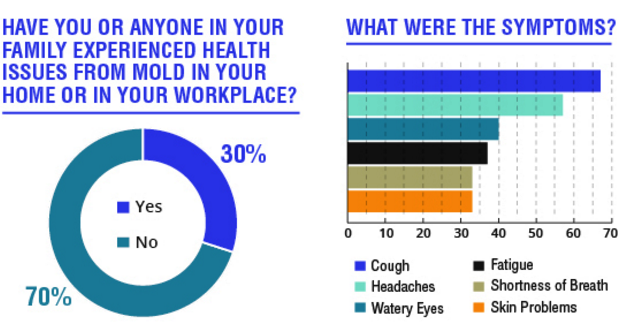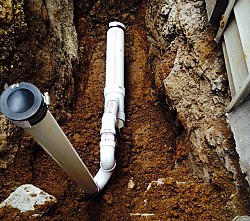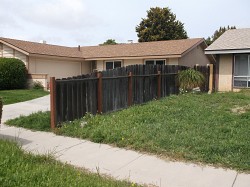Survey Shows Why A Wet Basement Is Bad News And How To Avoid It
Whether you rent or own, the verdict comes out the same – living in a home with a wet basement is bad news. A recent consumer survey tallied the costs, in terms of both dollars spent on repairs and the physical and psychological toll, of basement water intrusion. Find out just how severe this problem is and what you can do to relieve it.

62% worry constantly about water entering their home
Homeownership can be a source of pride and pleasure. It can also be a something of a nightmare, if anything goes wrong with your property. According to the survey, 62 percent of homeowners worried constantly about water entering their homes. This is not a baseless fear. Flooding or excessive dampness in your basement can ruin the furniture, floors, drywall, framing, and even your home’s foundation – not to mention any possessions you may have stored down there. Even worse, water damage may not be covered by a standard homeowners insurance policy.
76% fear being harmed by mold
Perhaps the worst result of a wet basement is mold. Mold spores tend to grow quickly in moist conditions, appearing within 24 to 48 hours on porous surfaces like wood, fabric, or paper. This threatens not only your material belongings but more seriously, the health of your household members. Inhaling or touching moldy surfaces can lead to flu-like symptoms (coughing; sneezing; irritated, watery nose and eyes), skin rashes, breathing difficulties, and lung irritation. Most severely affected are people with a history of allergies or other respiratory problems. The survey reported that fully 76 percent of homeowners were afraid they and their families were being harmed by mold.
30% have faced costs of $5,000+ for health issues
While it’s difficult to measure the harmful effects of mold in dollars and cents, 30 percent of survey respondents stated that mold-related health issues cost them $5,000 or more. The figure includes expenses such as medical bills, lost wages from time off work, and moving fees. This is in addition to the cost of damage repair and replacement of furniture, electronics and other items which were harmed by flooding, leaks, or other moisture in the basement; once again, approximately 30 percent of respondents paid out at least $5,000.
71% were unaware they were moving into a home with a wet basement
Surprisingly, a whopping 71 percent of folks in a home with a wet basement claimed that they didn't know about the issue before they signed a contract to purchase or rent the dwelling. The broker who showed the house would have been required to mention the moisture trouble only if he or she was aware of it; legally, listing brokers are not obliged to investigate their properties for potential problems. Even the sellers’ obligation to report basement water intrusion is somewhat hazy under law.
BUYER BEWARE: When you visit real estate, look at more than just the gorgeous kitchen remodel or the spacious backyard. Go down to the basement and check the walls and ceiling for water stains or peeling paint. And if your view is “accidentally” blocked by stacks of boxes or piles of suitcases, watch out!
Take action against wet basements
The best line of defense is to avoid moving into a home with a wet basement in the first place; any purchase offer should be contingent on inspection by a qualified professional. However, if you are already living in a home that has basement water problems, there are several possible solutions, according to Energy Star.
Hire a concrete contractor to repair any foundation cracks and prevent leakage. Waterproof your basement, especially if it has a dirt floor. Install a sump pump as a defense against flooding, with a battery-operated backup in case of power failure. Ensure that your HVAC system is correctly sized so it is able to remove ambient humidity.
Laura Firszt writes for networx.com.
Updated November 5, 2018.
Looking for a Pro? Call us (866) 441-6648

Average Costs
Related Experiences

Emergency Plumbing Repair Of Collapsed Sewer Pipe

We Finally Extended Our Concrete Patio And Our Yard Looks Amazing



